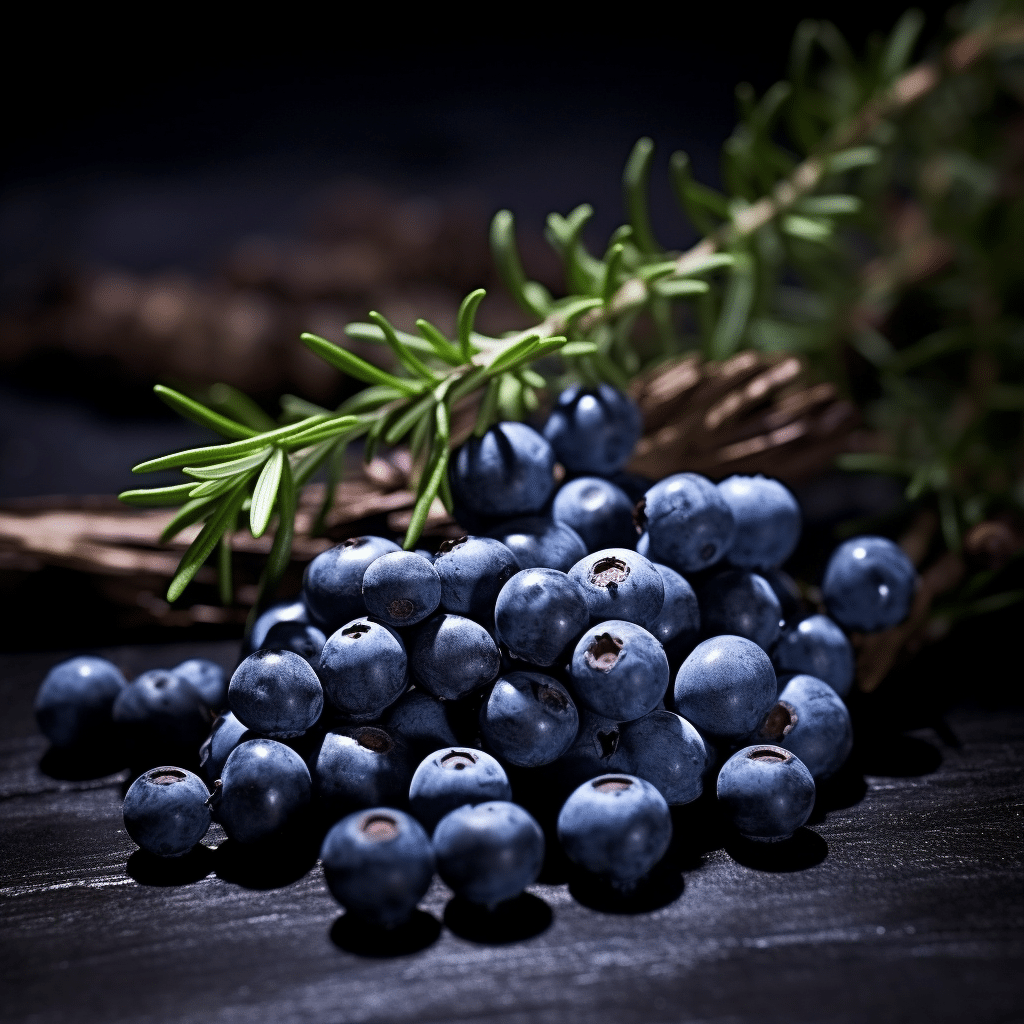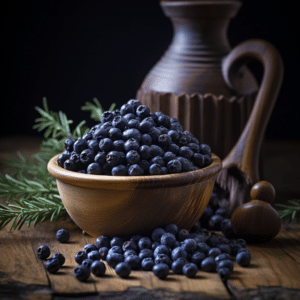
Juniper Berries: Uses, Benefits and Precautions
The Juniper berry is not a true berry but has the appearance of one. The berry has fleshy and merged scales, giving it a berry appearance. A female juniper tree produces seed cones known as juniper berries, whereas a male Juniper Berries Uses produces little brown cones. Juniper berries are the only species obtained from conifers. The berries vary in size, some as small as 4 mm, while others are as large as 28mm.

Can You Eat Juniper Berries?
The majority of species of Juniper berries are edible. They can be eaten while fresh, dried, cooked, or in powder form. There are more than fifty species of juniper trees that grow worldwide in diverse climatic conditions depending on the species. Some species such as J.Sabina are considered toxic and are, therefore, not fit for human consumption.
How To Harvest Juniper Berries
You might be wondering when and how you should harvest juniper berries. Most berries ripen in winter and fall and these are the best times to harvest. When picking juniper berries, it is wise to use gloves. The leaves of the juniper tree are sharp and may injure you while picking up the berries. You should consider wearing heavy-duty gloves. Lay a sheet on the ground, and shake the berries. After harvesting, they are dried and crushed to get the edible content inside. Flavor and aroma are strongest after harvesting and decrease as the berries are dried and stored.
Uses Of Juniper Berries
Juniper berries can be used in different ways;
Culinary uses
Juniper berry has a woody aroma with a tart, pine-like flavor. The spice and flavoring are used in a variety of foods such as meat dishes, stews, and vegetable dishes. These spices are used in small portions due to the strong spicy taste. Juniper berries are also dried and used as a cleansing tea when mixed with other herbs.
Medicinal and beauty uses
Juniper berry has great medicinal properties;
- Juniper berries have diuretic properties that increase urine production and may be useful in the treatment of Urinary Tract Infection (UTI).
- It has antibacterial and antifungal properties that can fight more than 16 species of bacteria, Fungi such as dermatophyte, and candida that causes infections such as yeast and mouth infection.
- Contains anti- inflammatory and antioxidant properties. Juniper berries contain rutin, luteolin, and apigenin that act as anti-inflammatory and antioxidant agents that protect cells from damage by free radicals.
- Contain anti-diabetic properties. Juniper berries were used traditionally to treat diabetes. These properties are associated with the berries’ high antioxidant levels.
- They have antiseptic properties and are therefore beneficial in the treatment of wounds, acne, and other skin breakouts. They help to regulate oil production by balancing sebum production. This aids in fighting cellulite too.
- The use of juniper berry soaps and essential oils reduces aging signs such as wrinkles, age spots, and fine lines.
- Essential oils aid in making the skin more resilient to UV rays and other environmental skin stressors.
- Juniper berries oils help in fighting dandruff and promote a healthy scalp.
- It can improve digestion, and thus relieve bloating and constipation.
- They can be used for aromatherapy, body massage, diffusion, and perfumery. It is also used as an air freshener.
- In traditional medicine, it was used as a birth control method among women.
- They are used as beads for decoration and jewelry.
- Used in the manufacture of gins and other soft drinks.
- Juniper can be used as a fragrance due to its strong smell.
Spiritual And Magical uses
People in some societies use fir to clean places where they do rituals and things that are used for magic. The people in these towns think that juniper berries and essential fragrances protect them and get rid of evil spirits and bad energy. They use it to cleanse the sick and in practices to heal them. In those countries, juniper is linked to divination and telling the future. People think that juniper helps them concentrate and focus better when they meditate. It is a great way to get in touch with the spirit world.
Blends
Juniper berries extract blends well with Vetiver, cypress, Elemi, Cedarwood, pine, lavender, labdanum, rosemary, benzoin, geranium, and orange extracts. These blended herbs can be used for herbal tea, infused water, food flavoring, and spices.
Side Effects Of Juniper Berries
Juniper berries might be safe when consumed in small quantities. However, large quantities can cause side effects;
- They could cause irritation, redness, burning, and swelling when used on the skin.
- They should not be used for the treatment of large wounds.
- High dosage or prolonged use can cause kidney problems. If you have a history of kidney problems, avoid these berries.
- Over dosage could cause seizures, stomach, and intestinal disorders, and unstable blood pressure, which might shoot very fast, and drop rapidly.
- Stop using juniper two weeks before a scheduled surgery, as it affects blood sugar control which may be risky during a surgery. In the case of emergency surgery, inform your doctor that you are using juniper.
- Juniper may lower the blood sugar too much in diabetes patients causing more complications.

Precautions And Warnings
Juniper berries, even in small doses, affect the uterus and can cause miscarriage or interfere with fertility. Pregnant women and those trying to conceive should avoid using these berries and their byproducts. Breastfeeding mothers should also avoid using these berries as they can be easily passed to the baby through breast milk.
A Baby’s immature system might not tolerate the phytochemicals found in juniper. While using it orally, you should not exceed two weeks or the recommended dosage. Consult a health expert before using juniper berries. Discontinue topical use if you have any adverse reactions.
Juniper Berries Uses, most juniper berries are edible with the exception of a few species. They have many health benefits, but one should not exceed the recommended dosage and period. The side effects can have an adverse impact on your health.